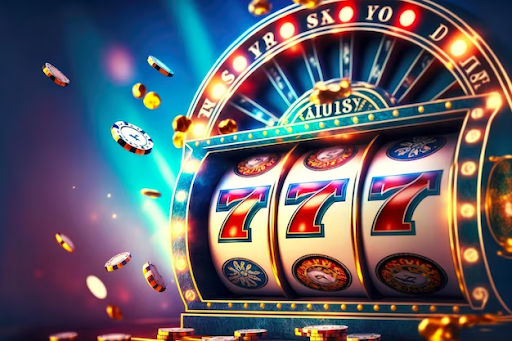The allure of the casino, with its flashing lights, captivating games, and the promise of winning big, can be irresistible. However, it’s essential to approach gambling with responsibility and mindfulness. Responsible gambling is not only about having fun but also about ensuring that it doesn’t lead to financial or emotional distress.
In this blog, we will explore the importance of responsible gambling and provide you with valuable tips to enjoy the casino safely.
Understanding Responsible Gambling
Before we dive into the tips for responsible gambling, let’s establish what it means. Responsible gambling is a set of behaviors and practices that allow individuals to enjoy slot online gambling as a form of entertainment while minimizing the potential harm it can cause. It involves making informed decisions, setting limits, and seeking help when needed.
1. Set a Budget
| Expense Category | Monthly Limit |
| Casino Gambling | $200 |
| Dining and Drinks | $100 |
| Transportation | $50 |
| Entertainment (Shows) | $50 |
| Total Budget | $400 |
Setting a budget is the cornerstone of responsible gambling. Determine how much money you can comfortably afford to lose without affecting your daily life or financial stability. Create a monthly gambling budget and stick to it. Once you reach your limit, stop playing, even if you’re on a winning streak.
2. Know the Games
Before you start playing, take the time to understand the rules and odds of the games you’re interested in. Different casino games offer varying levels of risk and reward. Some games, like blackjack and poker, involve skill and strategy, while others, like slot machines, are purely based on chance. Knowing the rules and odds can help you make informed decisions and choose games that align with your budget and preferences.
3. Time Management
| Time Slot | Activity |
| 7:00 PM – 9:00 PM | Dinner and drinks |
| 9:00 PM – 11:00 PM | Slot machines |
| 11:00 PM – 11:30 PM | Break |
| 11:30 PM – 1:30 AM | Blackjack |
| 1:30 AM – 2:00 AM | Wrap up and leave |
Just as setting a budget is crucial, managing your time is equally important. Create a schedule for your casino visit, allocating specific time slots for different activities. This helps prevent impulsive or prolonged gambling sessions. Be sure to include breaks to rest and reflect on your gaming experience.
4. Avoid Chasing Losses
It’s easy to fall into the trap of trying to recoup losses by betting more. This behavior, known as “chasing losses,” can lead to even greater financial setbacks. If you find yourself in a losing streak, it’s essential to walk away and take a break. Remember that gambling outcomes are random, and there’s no guarantee of winning.
5. Self-exclusion and Cooling-Off Periods
Most reputable casinos offer self-exclusion programs and cooling-off periods. Self-exclusion allows you to voluntarily ban yourself from entering the casino for a specified period. Cooling-off periods limit your access to certain gambling activities for a set time. Consider using these options if you feel that your gambling habits are becoming problematic.
6. Recognize Signs of Problem Gambling
| Signs of Problem Gambling | What to Do |
| Spending more money on gambling than intended | Revisit your budget and set stricter limits. |
| Neglecting responsibilities due to gambling | Seek support from friends or family. |
| Feeling restless or irritable when not gambling | Take breaks and engage in other activities. |
| Lying about gambling habits | Be honest with yourself and seek help if needed. |
| Borrowing money to gamble | Consult a financial advisor and consider self-exclusion. |
It’s crucial to be aware of the signs of problem gambling. If you or someone you know exhibits these signs, it’s essential to take action promptly. Seek support from friends, family, or professional organizations that specialize in judi slot online gambling addiction.
7. Seek Help if Needed
If you believe that you may have a gambling problem, don’t hesitate to seek help. Many resources and support groups are available to assist individuals struggling with gambling addiction. Reach out to a counselor or therapist who specializes in addiction, or contact a helpline such as the National Council on Problem Gambling (NCPG) for guidance and assistance.
Conclusion
Responsible gambling is about finding the right balance between enjoying the excitement of the casino and maintaining control over your gambling habits. By setting a budget, managing your time, understanding the games, and recognizing the signs of problem gambling, you can ensure that your casino experience remains enjoyable and safe. Remember, gambling should always be a form of entertainment, not a source of financial or emotional distress.

